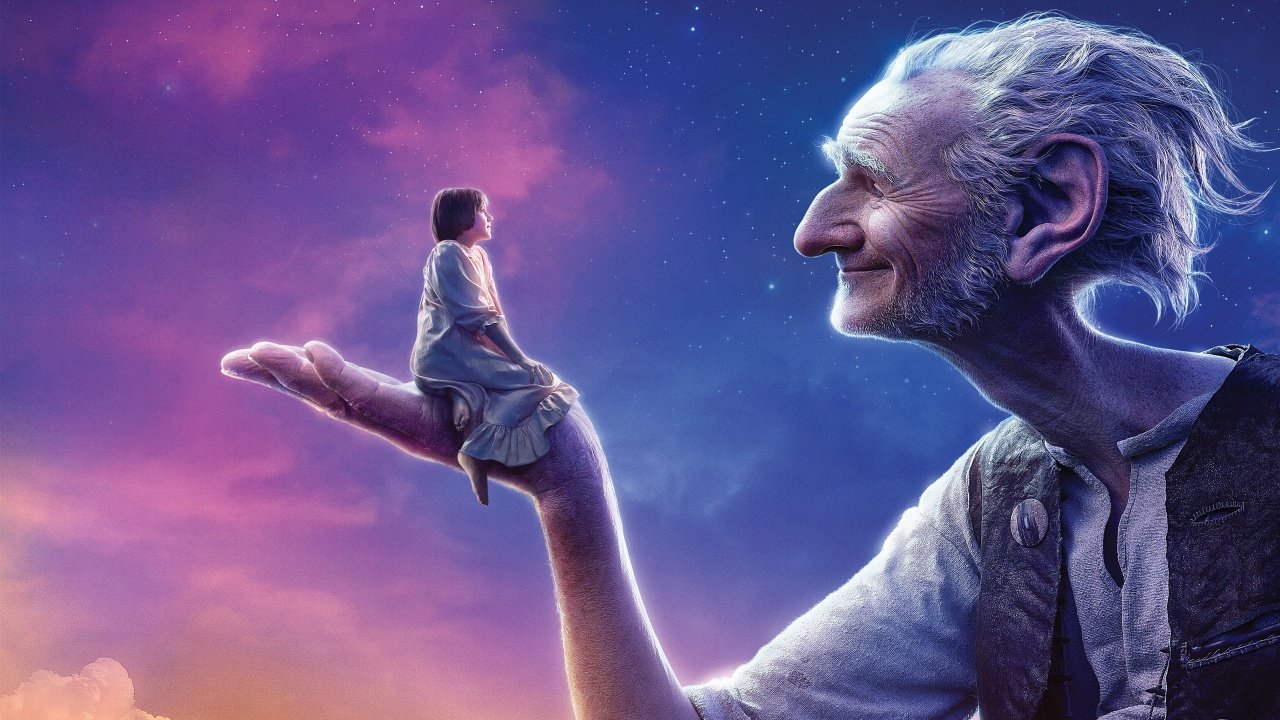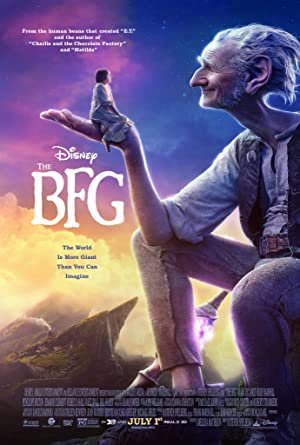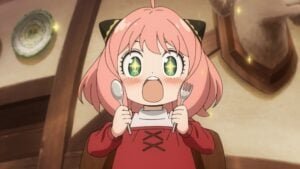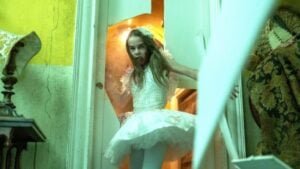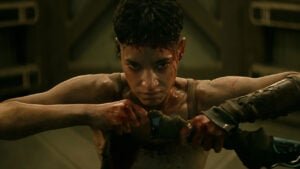Strange though it may sound, Steven Spielberg and Disney have never made a movie together before now. That barely seems possible given that they essentially specialize in the same brand of giddy family entertainment rooted in wonderment. Yet, somehow those streams just never crossed before, so it’s exciting now that they finally have for The BFG. Not only does the film unite a movie studio known for its beloved children’s fantasies with a director famous for implanting iconic images in a generation of young cinemagoers, but it also mixes in one of the most enduring children’s novelists of all time:Roald Dahl.
The man behind The Witches and Charlie And The Chocolate factory is a bit too British and morbid for Spielberg and Disney most of the time. But, The BFG is the softest and sweetest book on Dahl’s shelf, boasting the word friendly right in the title. It’s also one of Dahl’s lesser works, and Spielberg’s desire to stay surprisingly true to the source material ensures that the movie’s a lesser Spielberg offeringproduction as well. Thankfully, lesser Spielberg is still better than most directors at the absolute peak of their powers.
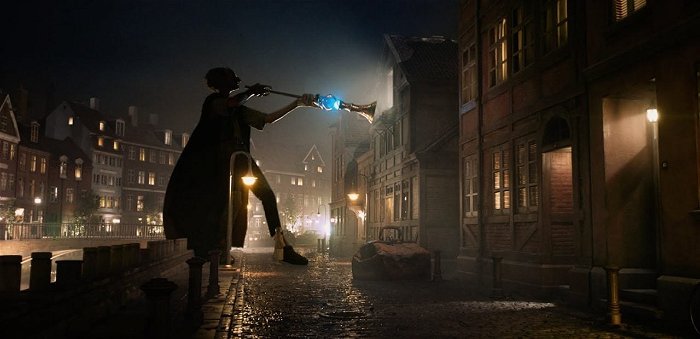
The BFG stars one of Spielberg’s favourite tropes: a plucky youngster more attuned to the world than the adults around her. In this case Ruby Barnhill plays Sophie, an orphan snatched up from her bed one night by the hands of a giant. Thankfully, it’s the Big Friendly Giant (see title) played by Mark Rylance. He lives in a land populated by giants who enjoy munching on children stolen from our world. However, The BFG is a vegetarian and the smallest and gentlest of his kind. At first Sophie is a bit miffed by the whole kidnapping thing, but gradually she is charmed by her captor as he shows her how he catches dreams and sneakily blows them into the brains of slumbering humans during the night.
This makes up roughly the first thirty minutes or so of The BFG and it is by far the best section. The material gives Spielberg the chance to fill the screen with the type of grand, transporting images of wonderment that made his name. The use of scale is impressive, particularly in 3D. The unrelenting score from John Williams provides all of the spine tingles that he’s known for. Barnhill delivers an impressive, grounded performance that proves good ol’ Spielberg has lost none of his special touch with young performers. Yet, the most impressive achievement is the director’s work with Mark Rylance as the titular BFG.
The motion capture performance that Rylance and a team of CGI wizards deliver is absolutely remarkable, enough to make even Andy Serkis jealous. Rylance is a subtle performer who does a great deal with the smallest of facial movements, which the effects team capture beautifully while still retaining the cartoony design from Dahl’s original book. It’s an incredible creation, perhaps even something of a humanistic milestone in the ever-expanding world of mo-cap performance. Unfortunately, the rest of the movie can’t quite live up to the beautiful opening act.
Aside from slightly toning down the children-munching tendencies of the evil giants, the script written by Spielberg’s late E.T. collaborator Melissa Mathison sticks remarkably close to the source material, much to the film’s detriment. Roald Dahl was a great writer, no doubt about it. However, his greatest strengths were wordy wit, devilish imagination, and perverse humour. Plotting was never his strong suit and The BFG was always one of his weaker stories. The second act features Sophie and The BFG dodging attacks from evil giants led by the always delightful Jemaine Clement.
It’s fine, but repetitive. Mostly it’s an excuse for Spielberg to indulge in some of the massive single take CG action scenes he started in The Adventures Of Tintin, and once again they are more technically impressive than actually viscerally thrilling. Then comes a deus ex machina third act involving the Queen that feels like a bit of a cop out aside from a few great fart jokes (which Spielberg handles with style, to be fair). For the most part, it’s frightfully British slapstick that Spielberg overdoes because slapstick is one of his great weaknesses as a filmmaker. He’s good at comic relief in genre fare, but not at straight comedy, and much of the final third of The BFG recalls the hit n’ miss excesses of his 1979 flick 1941. It’s well staged technically, just not particularly funny. That’s a problem and brings the movie to a close on a down note.
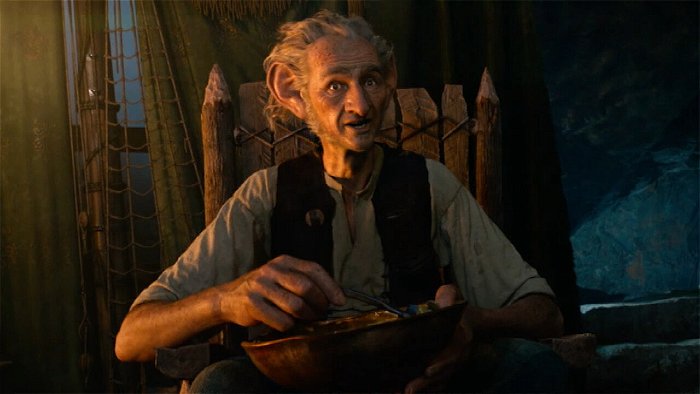
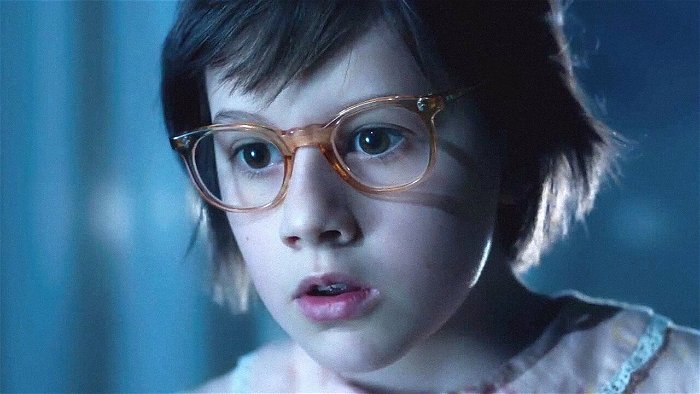
Still, while The BFG might sag a bit and stutter to a stop, that actually makes it an honest adaptation of the source material. It’s hardly a bad film, just one that doesn’t quite add up to the sum of its considerable parts. When the blockbuster works, Spielberg serves up magical imagery that truly transports viewers and reminds them how little imagination and cinematic talent make it into most massive CGI blockbusters.
Those sequences pop up regularly, and whenever Spielberg gets a chance to tug on the heartstrings, the big dopey cartoon offers surprisingly emotional heft. It’s a delightful bit of family entertainment, just one that is neither as funny as it thinks it is nor particularly narratively satisfying. It’s a shame Spielberg wasn’t more liberal in his adaptation, but chances are he felt too indebted to the memories of both Dahl and Mathison to mess with the script. Or maybe his heart just isn’t as in this brand of mass entertainment as it once was.
It has been a decade since Spielberg’s last pure blockbuster hit in War Of The Worlds (Indiana Jones and the Kingdom of the Crystal Skull doesn’t count as far as I’m concerned) and even that one was laced with adult themes and darker imagery. We may think of Spielberg as the ultimate child-friendly populist, but he’s actually matured into a someone who makes genre movies for grownups ever since Schindler’s List. Perhaps he should stick with that. The BFG might delight more than most family fare, but only because the competition is so thin. Last year’s Bridge Of Spies showed Spielberg far more engaged as a filmmaker, and perhaps those sorts of projects should be his focus from here on out. Sure, Spielberg would be missed during the summer blockbuster season that he created, but at least the movies that he makes in the twilight of his career would have more of a chance of ranking amongst his best.
